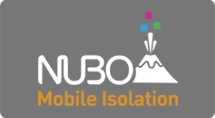Look around in today’s emerging mobile generation and you’ll notice a new consumer app for business sprouting up every which way you turn. While the tsunami of business-related consumer apps flooding the market can feel exciting and liberating to employees, the impact of this demand on many current security solutions could have anxiety-ridden IT personnel worldwide scampering to their nearest therapist for sympathy and compassion. That’s because mobile phones are considered the weakest link for data security as additional protocols must be added for each app, creating multiple entry points for potential attackers. Personal phones often connect with unsecured WiFi networks, which makes the information they house that much more vulnerable. Until recently, most mobile security solutions such as MDM/MAM use secured containers – but this is far from a sure-fire way to guarantee that data cannot be accessed and breached. Data can be attacked from various angles by either breaking the encryption layer or locating the encrypted keys. Having it encrypted and decrypted within the device means that by design the keys must also reside there.
As the market for apps grows then so does the perceived burden on security. But if today’s BYOD culture means more employees will be accessing corporate data on their personal devices, why store the data there to begin with? This is why Virtualized Mobile Infrastructure (VMI) technology has been designed to leave zero data on personal devices.
With this new approach, Enterprise IT can plan for the future and sustain the demand for mobile apps in ways that haven’t been possible until now. With VMI, all apps and data are stored on a remote platform that works with both Android and iOS systems, unlike Virtualized Desktop Infrastructure (VDI), which depended on a Windows platform, and doesn’t translate well with mobile. The data is reflected from a cloud onto the device as flat image that cannot be analyzed nor captured. This renders many common mobile security issues, such as lost devices, a moot point. With no digital footprint on the device itself, IT can simply disconnect access from the cloud and rest easy knowing it owns all of the data.
By employing a VMI strategy that also preserves the native app experience for users, security teams gain an unprecedented level of peace of mind. Meanwhile, employees can enjoy the flexibility and freedom to choose from the wide world of apps. The sheer selection of mobile apps available seems to be increasing exponentially which can be a lot to absorb. But selecting useful apps for business can dramatically aid collaboration and organization and save both companies and their staff valuable time and money, all benefits that BYOD was meant to deliver, so the earlier you take the plunge the better.
In Part II of Wild World of Mobile, we’ll guide you through consumer apps that have been proven to save time, improve workflow and enhance the quality of engagement for employees and their clients.










